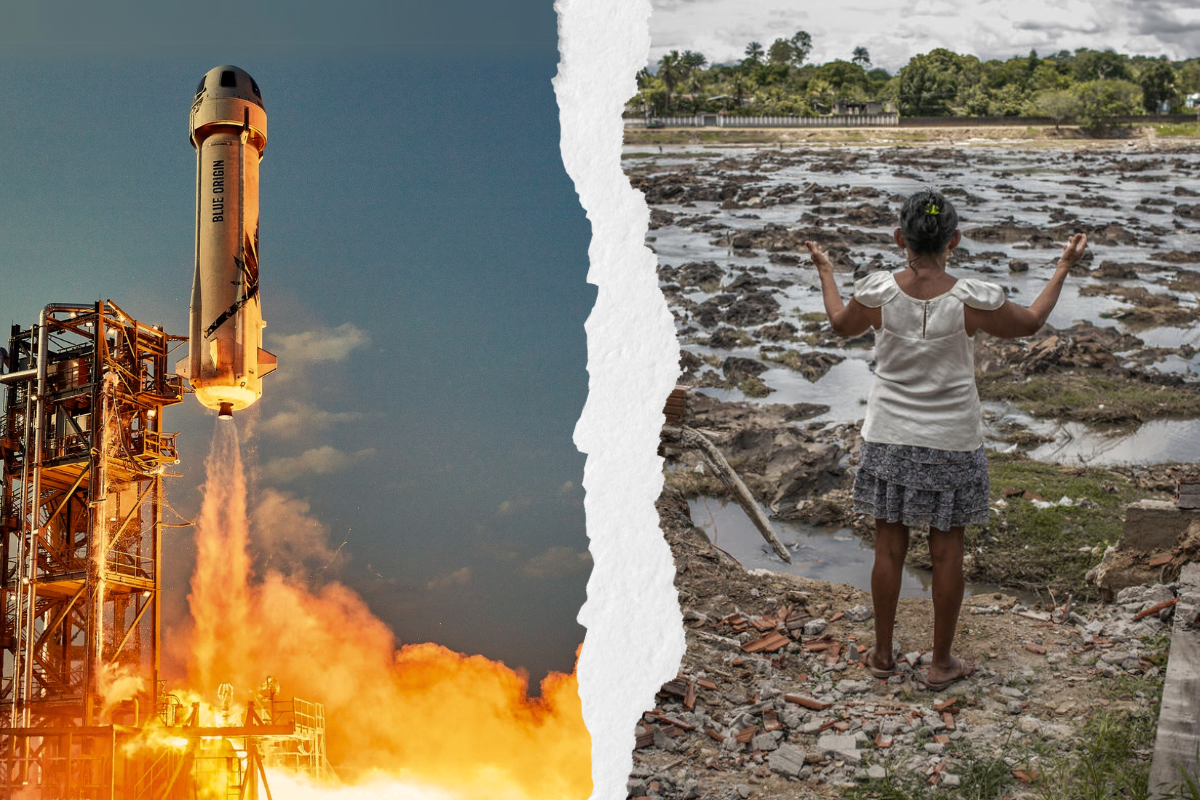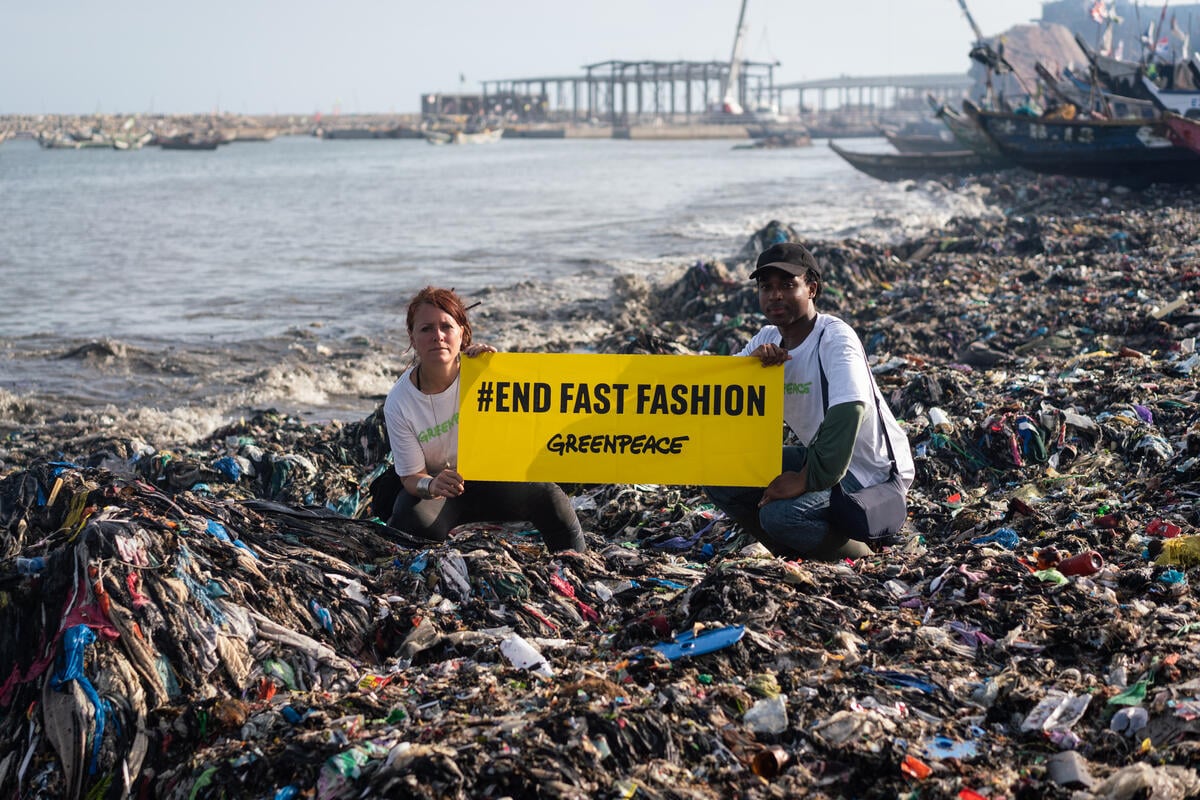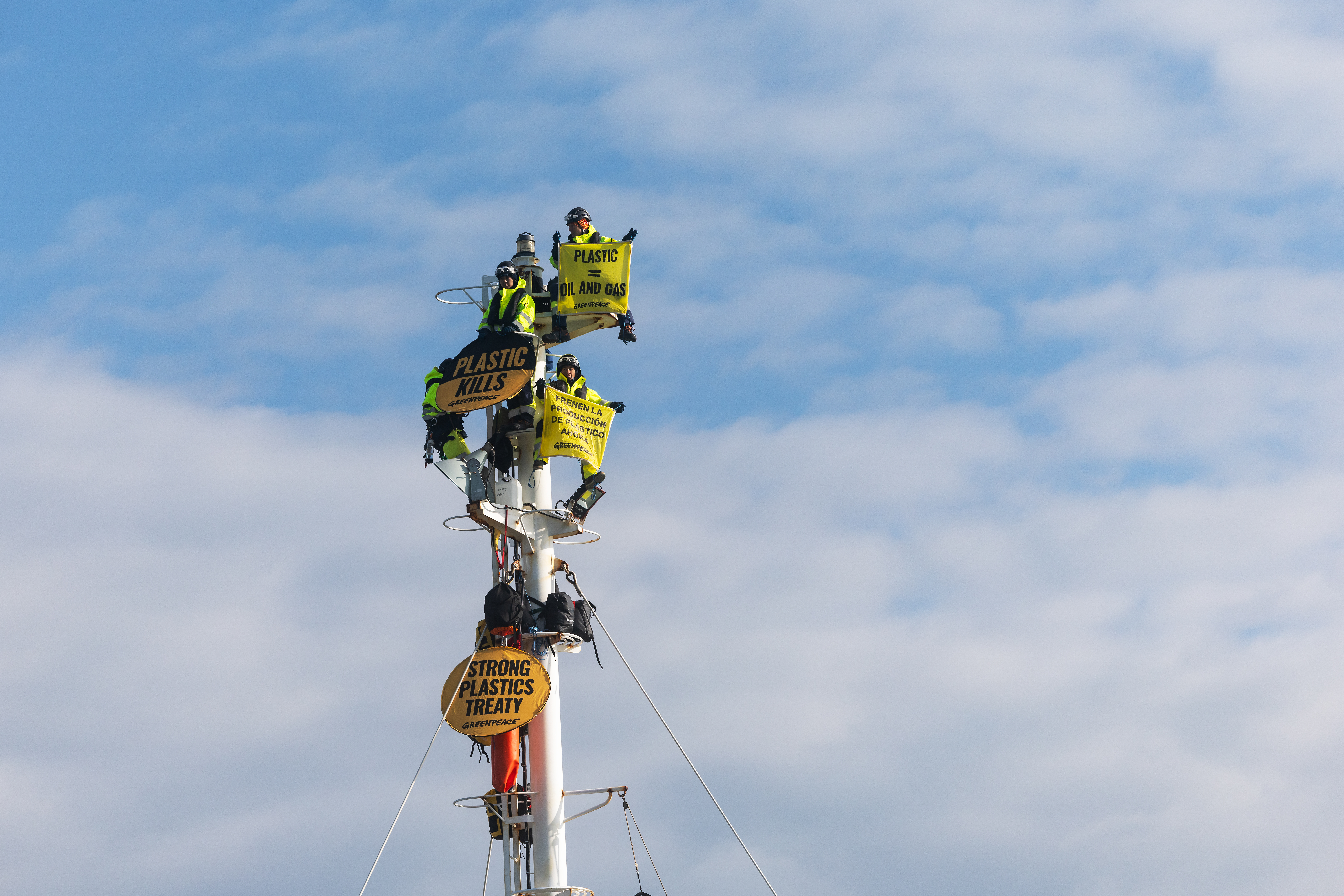“Another world is not only possible, she is on her way. On a quiet day, I can hear her breathing”
I can hear her too. I have spent my working life trying to help others hear her. I wonder, when attending the annual World Economic Forum meeting this week, in the cold mountain air of Davos, if I will still be able to hear her?

Statue of Justice Activity in Davos
Seven women will chair this year’s Davos, but I still wonder if lady justice will rise above the chorus of backroom deals and rhetoric about co-creating a better future. I wonder if we will be able to find the empathy and connectivity to not only debate the most pressing challenges facing the world today, but to also seize the opportunities they present to build a more sustainable and equitable future together. The time for simply tinkering with the existing system to preserve the status quois long gone.
Of course I will be reaching out in Davos with special attention on gender equality and justice as vital drivers of the changes we need to see in the world. I will appeal to all those I speak with to look inside themselves and ask how they feel about what is happening in the world. I will ask them to identify what they can do and simply implore them to get it done.
Each year just ahead of the Davos meeting, the WEF publish a Global Risks Report. Over the last few years, we at Greenpeace, and the broader environmental and social justice movements, have made many of the same points about risks, urgency and solutions The very systems from which corporations and politicians draw their power and profit are breaking down and creating the fractured world we now live in.
Extreme weather events (and make no mistake they are more extreme due to climate change) are once again for the second year running, what political and business leaders themselves say is the world’s biggest threat. They are also ranked close to weapons of mass destruction in terms of potential impact. We have clearly entered the era of alternative WMD – Weather of Mass Destruction.
What more relevant place, therefore, than to have this conversation at Davos, where many of the individuals who can ensure we turn the ship in time before hitting the iceberg, are present?
Of course, we have to appeal to those in power as human beings, as citizens, as parents and grandparents. We must not forget to appeal to their humanity. At the same time they have specific power and responsibility.
I will also be promoting a new Greenpeace report “Justice for People and Planet.” It calls on governments to impose effective and binding rules on corporate behavior, to make them accountable toward people and the planet. It shows how, rather than imposing these rules, governments have willingly, or unwillingly, become enablers of corporate impunity.
The report’s analysis of 20 specific cases shows how corporations have exploited corporate law, tax and investment treaties, regulatory capture and a series of barriers to justice to profit at the expense of human rights and the environment.
The report documents, among others, how differences in legal standards saw VW fined billions in the US for the dieselgate scandal, but escape unpunished in Europe; how Resolute Forest Products and Energy Transfer Partners have used SLAPP suits in an attempt to silence critics; how Glencore pollutes the environment and climate and uses private arbitration courts to pressurize governments; and how Spanish ACS group became an accomplice to an environmental and social catastrophe when it joined the construction of the Renace hydroelectric power project in Guatemala.
In response, we outline common-sense Corporate Accountability Principles that include ‘Holding corporations and those individuals who direct them liable for environmental and human rights violations committed domestically or abroad by companies under their control.’ and ‘Promoting a race to the top by prohibiting corporations from carrying out activities abroad which are banned in their home state for reasons of risks to environmental or human rights.’
Whenever possible in conversation I will relay the latest climate science, with a specific focus on the connection between extreme weather events, climate change, and corporate liability. This is a rapidly evolving field scientifically, and, as the impacts are hitting more often and more intensively, one that corporate leaders should be aware of. The recently announced case New York City divesting from fossil fuels against Exxon is based on this latest science.
As Executive Director of Greenpeace International, I get asked if I should really be going to Davos. The answer is yes. My predecessors attended for one simple reason– it is a rare opportunity to speak truth directly to power. Of course, as always, there is no guarantee those people will listen.
I will have many meetings with senior corporate leaders away from their large support teams. Somehow it feels like a more human interaction and a chance to speak heart to heart about facts, economic opportunities, as well as to help them find the compassion they need for these challenges.
Greenpeace is often the first one to turn up at the oil spill, or at nuclear disaster so why not be the ones to show up at court of corporate executives straight at the top, and get them to sign up now to the future I am sure they want for their kids and grandkids.
Jennifer Morgan is an executive director with Greenpeace International




